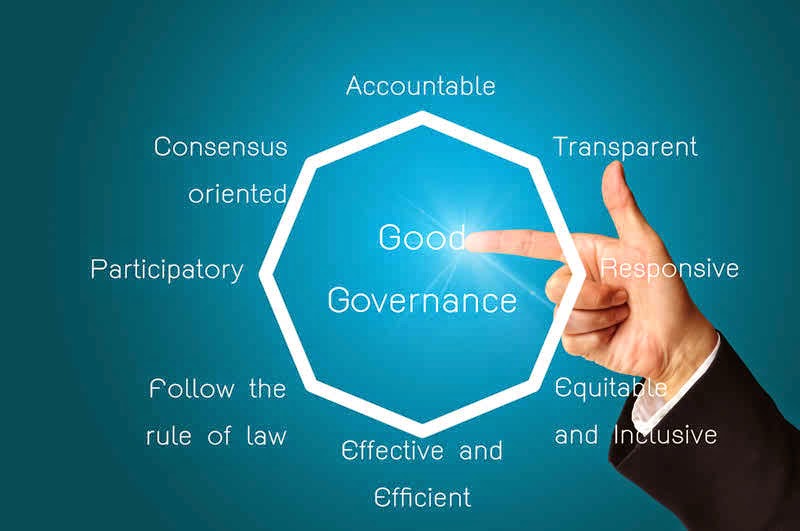Berlin Pride marchers warn of growing homophobia – dw.com

Report on the 2025 Berlin Christopher Street Day Parade and its Implications for Sustainable Development Goals
Executive Summary
On July 26, 2025, the annual Christopher Street Day (CSD) Pride parade was held in Berlin, Germany, with tens of thousands in attendance. The event, a celebration of LGBTQ+ identity and a call for equal rights, was notably overshadowed by a decision from the new conservative government not to display the rainbow flag on the parliament building. This report analyzes the event through the lens of the United Nations Sustainable Development Goals (SDGs), highlighting significant implications for SDG 10 (Reduced Inequalities), SDG 16 (Peace, Justice and Strong Institutions), and SDG 5 (Gender Equality).
Event Overview and Political Context
Key Details
- Event: Christopher Street Day (Berlin Pride Parade)
- Location: Berlin, Germany
- Date: July 26, 2025
- Attendance: Tens of thousands of participants
Controversial Government Action
The celebratory nature of the parade was tempered by the political climate. A recent decision by Germany’s new conservative government to refrain from raising the rainbow flag over the Reichstag building, the seat of the German parliament, was perceived by participants and observers as a significant setback for LGBTQ+ visibility and state recognition. This action signals a potential shift in policy and institutional support for minority groups, directly impacting the nation’s progress on key social sustainability indicators.
Analysis in Relation to Sustainable Development Goals (SDGs)
SDG 10: Reduced Inequalities
The CSD parade is a direct manifestation of efforts to achieve SDG 10, which calls for reducing inequality within and among countries. Specifically, it addresses Target 10.2: “By 2030, empower and promote the social, economic and political inclusion of all, irrespective of age, sex, disability, race, ethnicity, origin, religion or economic or other status.”
- The parade serves as a platform to advocate for the rights and inclusion of the LGBTQ+ community.
- The government’s decision not to fly the rainbow flag can be interpreted as an action contrary to the spirit of SDG 10, as it withholds a powerful symbol of inclusion and recognition from a marginalized group.
- This undermines efforts to ensure equal rights and combat discrimination based on sexual orientation and gender identity.
SDG 16: Peace, Justice and Strong Institutions
SDG 16 is focused on promoting peaceful and inclusive societies for sustainable development, providing access to justice for all, and building effective, accountable, and inclusive institutions at all levels. The events in Berlin touch upon several aspects of this goal.
- Peaceful Assembly: The parade itself is an exercise of the fundamental freedom of peaceful assembly, a cornerstone of peaceful and inclusive societies (Target 16.10).
- Inclusive Institutions: The parliament’s refusal to display the flag raises questions about its commitment to being an inclusive institution (Target 16.6). A government institution that fails to symbolically represent all its citizens risks eroding public trust and being perceived as unjust and non-inclusive.
SDG 5: Gender Equality
While often focused on women and girls, SDG 5 aims to “achieve gender equality and empower all women and girls.” The principles of gender equality are intrinsically linked to the rights of LGBTQ+ individuals, as both challenge rigid gender norms and advocate for the right to self-determination and freedom from discrimination.
- The struggle for LGBTQ+ rights is a critical component of the broader movement for gender equality.
- Actions that marginalize the LGBTQ+ community are detrimental to the overall progress of SDG 5, as they reinforce discriminatory structures.
Conclusion
The 2025 Berlin CSD parade highlighted the ongoing struggle for equality and inclusion. The government’s symbolic decision not to raise the rainbow flag over the parliament building represents a significant challenge to Germany’s commitment to the Sustainable Development Goals, particularly those concerning inequality, justice, and institutional inclusivity. The event underscores the critical need for continued vigilance and advocacy to ensure that progress towards a just and sustainable society for all is not reversed.
SDGs Addressed in the Article
-
SDG 10: Reduced Inequalities
This goal is central to the article, which discusses the rights and social inclusion of the LGBTQ+ community. The Christopher Street Day parade is an event promoting the inclusion of a marginalized group, while the government’s decision not to fly the rainbow flag and the warning of “growing homophobia” highlight ongoing inequalities and discrimination.
-
SDG 16: Peace, Justice and Strong Institutions
This goal is relevant as it pertains to inclusive institutions and non-discriminatory policies. The article highlights a decision by a government institution (the parliament) that is perceived as non-inclusive and discriminatory by the Pride marchers, touching upon the need for accountable and inclusive governance.
-
SDG 5: Gender Equality
While this goal focuses on women and girls, its underlying principle is to end all forms of discrimination. Issues of homophobia and LGBTQ+ rights are intrinsically linked to challenging traditional gender norms and combating discrimination based on gender identity and sexual orientation, making this goal relevant to the article’s context.
Specific SDG Targets Identified
-
Target 10.2: By 2030, empower and promote the social, economic and political inclusion of all, irrespective of age, sex, disability, race, ethnicity, origin, religion or economic or other status.
The article directly relates to this target by describing the Christopher Street Day parade, an event where “tens of thousands of people” celebrate to promote the social and political visibility and inclusion of the LGBTQ+ community. The government’s action of not raising the flag is presented as a barrier to this political inclusion.
-
Target 10.3: Ensure equal opportunity and reduce inequalities of outcome, including by eliminating discriminatory laws, policies and practices and promoting appropriate legislation, policies and action in this regard.
The warning of “growing homophobia” points to the persistence of discriminatory practices. The government’s decision not to fly the rainbow flag over the parliament is a specific policy action that is perceived as discriminatory and unsupportive of the LGBTQ+ community, thereby undermining the effort to ensure equal opportunity and reduce inequality.
-
Target 16.b: Promote and enforce non-discriminatory laws and policies for sustainable development.
This target is addressed through the article’s focus on a specific policy decision by “Germany’s new conservative government.” The choice not to raise the rainbow flag is a governmental action that can be interpreted as a failure to promote non-discriminatory policies, especially in a symbolic and public context like a Pride celebration.
Indicators for Measuring Progress
-
Indicator related to Target 10.3 and 16.b (Proportion of population reporting having personally felt discriminated against or harassed).
While the article does not provide a specific statistic, it explicitly mentions that “Berlin Pride marchers warn of growing homophobia.” This warning is a direct, qualitative indicator that the perception and experience of discrimination within the LGBTQ+ community are increasing. This serves as a proxy for official indicators like 10.3.1 / 16.b.1.
-
Indicator related to Target 10.2 (Proportion of people who believe decision-making is inclusive and responsive).
The article implies a negative trend for this indicator. The fact that the Pride parade was “overshadowed by Germany’s new conservative government deciding not to raise the rainbow flag” suggests that a significant portion of the population (the “tens of thousands” of marchers) perceives this government decision as non-inclusive and unrepresentative of their interests.
-
Indicator related to Target 16.b (Existence of independent national human rights institutions).
The article implies the need for stronger enforcement of non-discriminatory policies. The government’s action, which is seen as a step back, highlights the importance of institutions that can hold governments accountable and ensure non-discriminatory policies are upheld. The public protest and warnings from marchers function as an informal mechanism of accountability.
SDGs, Targets, and Indicators Analysis
| SDGs | Targets | Indicators (Mentioned or Implied in Article) |
|---|---|---|
| SDG 10: Reduced Inequalities | Target 10.2: Empower and promote the social, economic and political inclusion of all, irrespective of… other status. | The participation of “tens of thousands of people” in the Pride parade serves as a qualitative indicator of social empowerment and a call for political inclusion. |
| SDG 10: Reduced Inequalities | Target 10.3: Ensure equal opportunity and reduce inequalities of outcome, including by eliminating discriminatory… practices. | The warning of “growing homophobia” is an implied indicator of persistent discriminatory attitudes and practices. |
| SDG 16: Peace, Justice and Strong Institutions | Target 16.b: Promote and enforce non-discriminatory laws and policies for sustainable development. | The government’s policy decision “not to raise the rainbow flag over the parliament building” is a direct example and indicator of a policy that is perceived as discriminatory. |
Source: dw.com

What is Your Reaction?
 Like
0
Like
0
 Dislike
0
Dislike
0
 Love
0
Love
0
 Funny
0
Funny
0
 Angry
0
Angry
0
 Sad
0
Sad
0
 Wow
0
Wow
0












































































